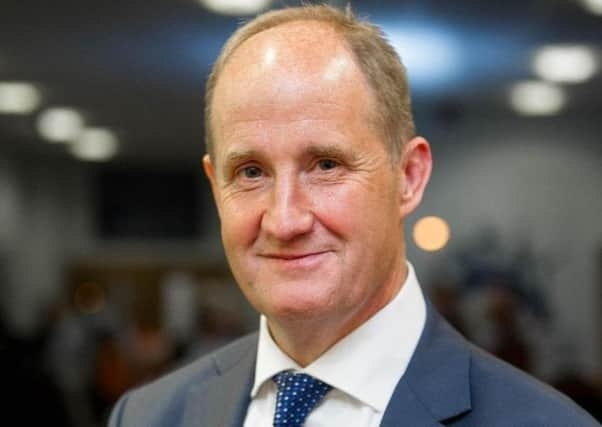Kevin Hollinrake: Tribunal could bring deceitful banks to heel


Businesses will often try to bend or break the rules — it is part of the entrepreneur’s DNA. Sometimes that can have a positive effect: creative destruction that finds new, more effective and cheaper ways of doing things that benefit consumers. Rule breakers such as Uber and Amazon present constant challenges to rule-makers as regulations have to play catch-up to deal with new and better ways of working.
However, sometimes breaking the rules can be very bad, particularly when they are broken so badly and with such immorality by those within an effective UK banking oligopoly of banks that are too big to fail, too big to sue and apparently too big to regulate.
Advertisement
Hide AdAdvertisement
Hide AdIn the last 10 years, particularly at Lloyds, HBOS and RBS, we have witnessed the most disgraceful, shameful episode in British banking’s 500-year history. Despite persistent and strenuous denials, those banks broke the rules to such an extent that they have been found guilty respectively of fraud and systematic mistreatment of their own business customers, which has led to the destruction of thousands of jobs, businesses and lives.
In business, business is one’s life – it is not just about money. Those banks not only denied wrongdoing but used all the money, influence and power at their disposal to shut down and discredit anyone who tried to draw attention to their malpractice.
In 2013, Yorkshire businessman Lawrence Tomlinson, then the entrepreneur in residence at the Department for Business, Innovation and Skills, was the first to discover and report on the abuses of thousands of SMEs at RBS and its notorious restructuring division, GRG.
Incredibly, its response to his report was to withdraw banking facilities to his extensive business empire – he was an RBS customer – putting thousands of jobs at his enterprises at risk. It even tried to convince its Coutts subsidiary to withdraw the mortgage on his home.
Advertisement
Hide AdAdvertisement
Hide AdTwo months after the Tomlinson review, the banking regulator, the Financial Conduct Authority, commissioned a full “skilled persons” report, which was completed in September 2016. It decided not to publish the report, at least in part — according to leaked minutes of the board meeting — because of concerns that it might be taken to court.
Instead, 12 months later, it published a summary of the report, which inexplicably reversed the principal emphasis from demonstrating “widespread inappropriate treatment” to “isolated examples of poor practice”. How can that be?
Power corrupts, and absolute power corrupts absolutely. With 90 per cent of our business lending under the control of our big four banks, it is vital that our regulators hold this oligarchy to account.
Yet, despite the banks’ chequered history of deception and denial, they are still allowed by the FCA to carry out their own internal compensation schemes and inquiries.
Advertisement
Hide AdAdvertisement
Hide AdThere is little sign of action from the regulators or our fraud or crime agencies. Our regulators should be fearless protectors of banking customers and consumers, but actually they appear to be defenders of the banking faithful.
Our major banks are so large and complex that I am sceptical that we will ever be able to regulate them effectively. As well as trying to stop these abuses from happening, therefore, we need a mechanism that offers redress to those abused when they do.
The proposed solution of expanding the Financial Ombudsman Scheme is welcome, but will still leave many without access to justice.
The FOS is an alternative dispute resolution mechanism; it cannot compel the release of evidence or attendance of witnesses, and judgments are made in private, so the guilty avoid scrutiny. The primary dispute resolution mechanism is the court, but who can afford to sue a bank?
Advertisement
Hide AdAdvertisement
Hide AdThe simple solution is to establish a Financial Services Tribunal which would emulate the operation of employment tribunals so that the plaintiff does not have to stand the cost of the defendant’s legal fees even if they lose.
If we give businesspeople confidence that they will be treated fairly if things go wrong, we can not only provide justice to those who have been wronged, but reverse the five-year decline in confidence and new borrowing from our banks and, crucially, deliver a timely boost to the UK economy.
Kevin Hollinrake is Conservative MP for Thirsk and Malton. He is co-chair of the All Party Parliamentary Group (APPG) on Fair Business Banking and spoke in a Parliamentary debate on banking – this is an edited version.